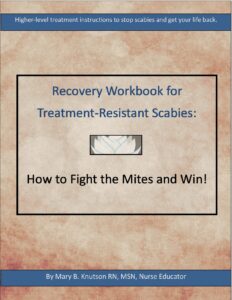
Fentanyl and substance abuse impacts every community in some way. There are increased dangers for young people in the digital age.
Risks of Internet Use
Ease of access has made it possible for anyone young or old to purchase the drugs. It is easily accessible through online platforms because drug dealers bypass dark web restrictions and sell drugs online. The internet has transformed how substances are bought and sold because it can be anonymous and convenient for buyers and sellers.
Risks of Social Media
Social media platforms are gateways for young people to access illegal drugs like fentanyl. Drug traffickers advertise on platforms like Facebook, Instagram, Snapchat, TikTok, Twitter, and YouTube. Typically, the advertising disappears in 24 hours via stories and posts, accompanied by code words and emojis. Prospective buyers contact the dealers through the post, and the conversations move to encrypted apps like Signal or Telegram. Payment is made via Venmo, Zelle, Cash App, and Remity.
Challenges for Parents or Guardians
Sadly, online drug dealing leads to substance use among youth, causing addiction and overdose. That is why the organization, SUPE, Substance Use Prevention Education, was founded to combat this dangerous trend. Fortunately, SUPE has reliable information and resources and even a video to help young people make informed choices and to help protect them from online drug dealers. It also has vital information for parents to protect their children from fentanyl.
Risks of Living in a Drug Culture
We live in a culture that glamorizes drug use. And young people are easily influenced. The consequences of fentanyl use among our youth are devastating. Its potency increases the risk of overdose, which can be fatal even with minimal exposure. Many young people experimenting with drugs may not be aware that fentanyl can be present in substances such as counterfeit pills. This lack of awareness and education about the dangers of fentanyl further compounds the problem, which is why SUPE provides free resources to empower families.
Moving from Addiction to Recovery
When young people become addicted to drugs, the people around them suffer, struggle to cope, and find support. If you are struggling and need help, there are practical resources and tips to help with addiction and coping that can be found on healthvista.net.
- Educate yourself and learn about the signs and symptoms of drug use and addiction. This helps you understand what the person is going through.
- Communicate as calmly as possible. Express concerns without confronting others. Avoid casting judgment, arguing, and pointing the finger. Listen actively and allow the person to talk while showing empathy and understanding.
- Offer support, but also encourage professional help. Seek guidance from a healthcare professional, counselor, or addiction specialist. Let the person know you are there to help them on their recovery journey.
- Find more treatment options through SAMHSA‘s treatment locator or Addicted.org‘s extensive directory listings of treatment centers. Other local resources may also be offered by local healthcare providers.
Both parents and young people who are going through have a lot of stress, anger, sadness, and resentment. Supporting someone with a substance use disorder is emotionally challenging, but your care and concern can make a significant difference.
- Learn ways to cope and prepare for the challenges ahead.
- Seek support for yourself; for example, attend support groups or speak with a counselor.
- Take care of yourself and prioritize your mental and physical health.
Now you know more about the significant dangers in the digital age and can be more watchful. Easy access to fentanyl impacts communities in a big way. Prevention of fentanyl addiction and ready access to treatment (if needed) are vital for your family and community’s health!
Blog # 31 posted August 5, 2024 by Guest Contributor Marcel Gemme, the CEO/Founder of SUPE








